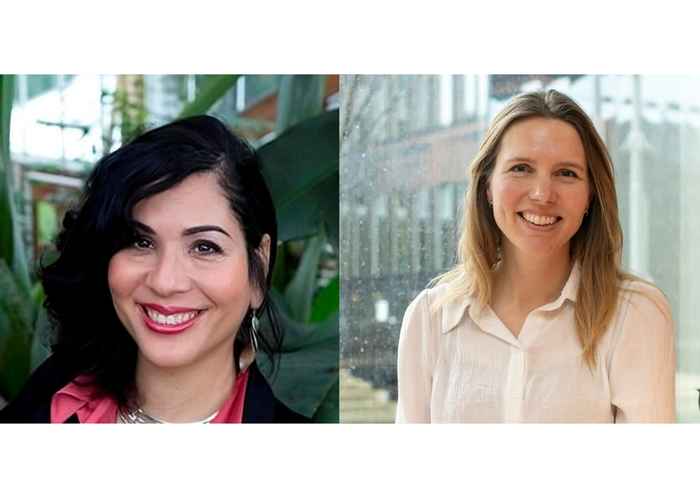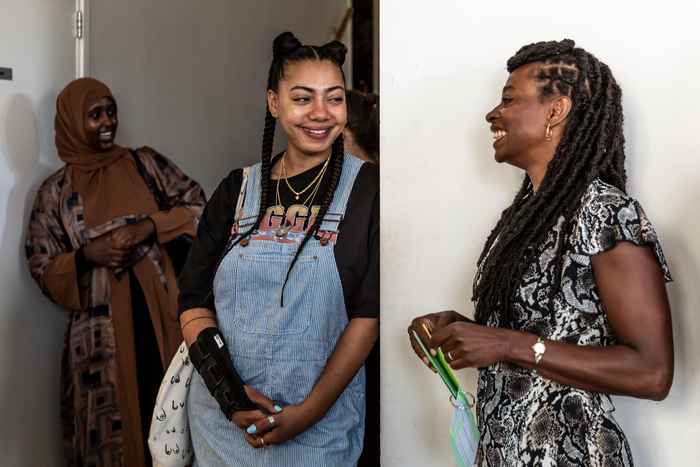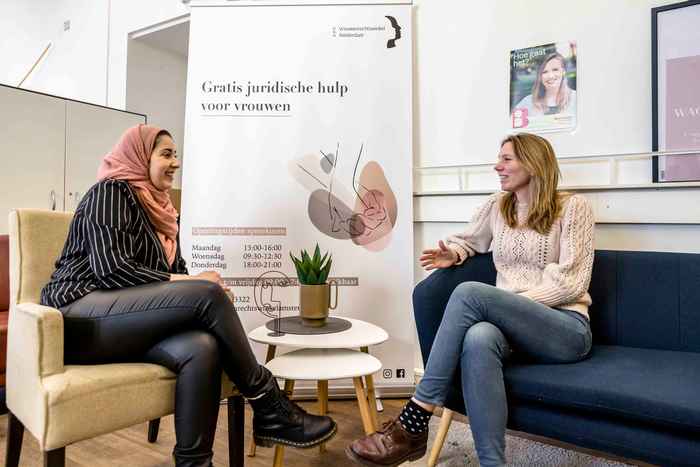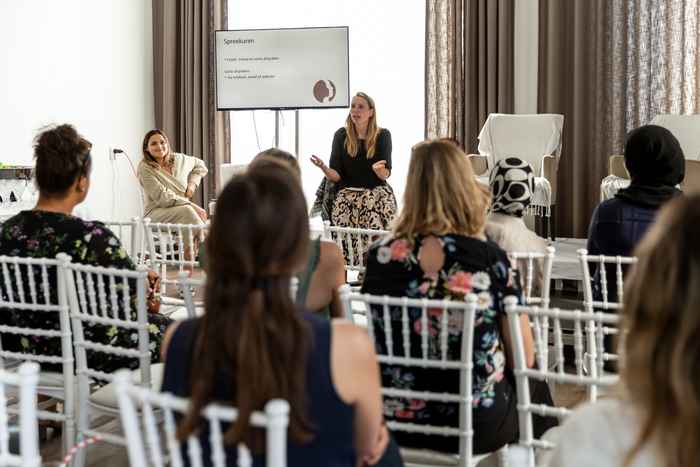The power of the Women's Legal Aid Clinic
Double interview with Susan Leclercq en Natalie A.C. Wanga
11 March 2025

Women in vulnerable positions often experience major obstacles in finding legal help. They have to deal with complex legal issues, financial dependence and cultural barriers. The Women's Legal Advice Centre is an initiative specifically aimed at making legal support accessible to women who would otherwise not be able to obtain legal aid. These initiatives play a crucial role in providing legal guidance and practical help to women facing inequality and injustice.
The Law Hub supervises the start-up process, trains lawyers and students, and thus strengthens the connection between the legal sector and social practice. In this interview, projectmanager of the Amsterdam Law Hub Susan Leclercq talks about the process of setting up and organising a women's legal advice centre, and projectmanager Women's Legal Advice Centre Leiden Natalie A.C. Wanga tells us about the impact of this in practice.
How do best practices from the Amsterdam Law Hub contribute to the development of women's legal aid centers?
Susan: "Our approach is always focused on social impact. We aim to make knowledge and experience not only available in Amsterdam but also applicable elsewhere. The Law Hub is always temporarily involved in projects, guiding the startup phase. After about six months, we hand over responsibilities to local organizations to ensure independence and sustainability."



What makes the women's legal aid center so valuable?
Natalie: "Beyond providing solid legal advice, accessibility and safety are key. Our approach is gender- and culturally sensitive, which is essential for the target groups we serve. The women's legal aid center offers a safe space where women can share their stories without fear and receive the right assistance."
Susan: "Women in vulnerable positions often have no other means to find a legal solution; they need to be able to take the first step."
How do you set up a women's legal aid center? Where do you start?
Susan: "It often starts with a concrete request from an organization or municipality that wants to establish a free legal service for women. Next, we look at funding, as financial resources are often limited. Here, we play a leading role. We help develop the vision, set up a recruitment program for staff and students, and establish communication strategies. We map out the legal network of formal and informal institutions and develop practical tools such as guidelines. Additionally, we provide training programs and facilitate connections with existing networks of women's legal aid centers. Finally, we assist with the physical setup and organize a ceremonial opening."
What has been achieved so far at the women’s legal aid center in Leiden?
Natalie: "With support from the Amsterdam Law Hub, Stichting Utopa has worked extensively with various chain partners in the city. We identified the legal aid needs and potential collaborations. This has led to partnerships with Leiden University, Leiden University of Applied Sciences, MBO Rijnland, and law firms. We are opening three locations: in the Utopa Orphanage (city center), Huis van de Buurt De Kooi (Leiden North), and Huis van de Buurt Op Eigen Wieken (Merenwijk)."
Which themes in women's rights need more attention?
Natalie: "Femicide is a shocking but under-discussed issue in the Netherlands. On average, every eight days, a woman is murdered purely because she is a woman. This calls for more research, policy changes, and legislation. But above all, we need to raise awareness to create structural solutions."
Susan: "Access to justice for women and the role of women's legal aid centers in this cannot be emphasized enough. They offer a low-threshold place where women can get legal advice. This has a huge impact on various forms of inequality and dependency relationships. A strong example is the gender gap in access to justice, which we aim to reduce with these initiatives."
What unexpected effect has the women’s legal aid center already had?
Natalie: "Although we will officially open in April, we are already noticing significant interest. This has also sparked discussions about the gender gap in the Netherlands and the need for structural change. This is a crucial step in raising awareness about legal inequality."
Are you curious about the possibilities of setting up a women's legal aid center in your city? Contact Susan Leclercq at s.m.leclercq@uva.nl.